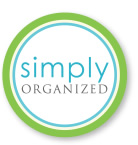
Are you wondering which papers you should keep and which ones you can get rid of? Here is a guide to help you out:
Keep this paperwork
- Tax returns – Keep forever
- Tax return documentation – The IRS says to keep for a minimum of seven years. Though depending on your individual tax situation, holding them longer may be advisable.
- Contracts – Keep forever
- Real estate records – Keep forever
- Last pay stub of a job – Keep forever if you leave that job
- Last pay stub of the year – Keep until you reconcile it with your W-2
- All mortgage payment checks (statements) – Keep until mortgage is paid off. Disputes about balances have been known to arise when ownership of the mortgage note changes hands.
- All student loan payments – Keep statements until the loan is paid off
- Car loan payment stub – Keep until the car is paid off
- Cancelled checks – Keep for seven years
- Bank deposit slips – Keep until you reconcile your statements
- Bank statements – Keep for the entirety of the calendar year; store with tax returns if they will be used to prove deductions, as in the case of charitable cash donations.
- Home improvement records – Keep for anywhere from six years to forever — they can lower your capital gains tax when you go to sell.
- Investment records – Shred monthly and quarterly statements as new ones arrive; hold on to annual statements until you sell the investments.
Toss these records
- Credit card statements that are more than three years old
- Past insurance statement
- Old utility bills, except the most recent one from your old address if you’ve moved
- Recently paid bills (statements), once you have something saying they’ve been paid
Source: BankRate.com and IRS.gov
For more information go to: https://clark.com/personal-finance-credit/record-keeping/




